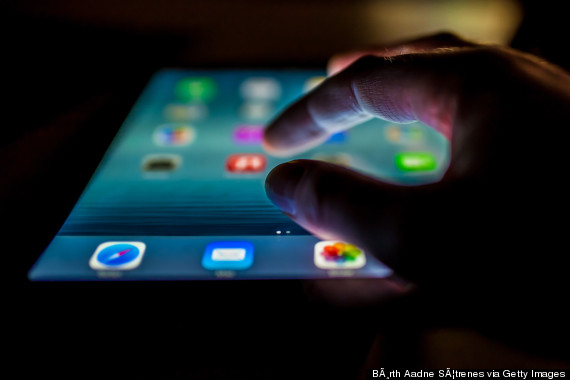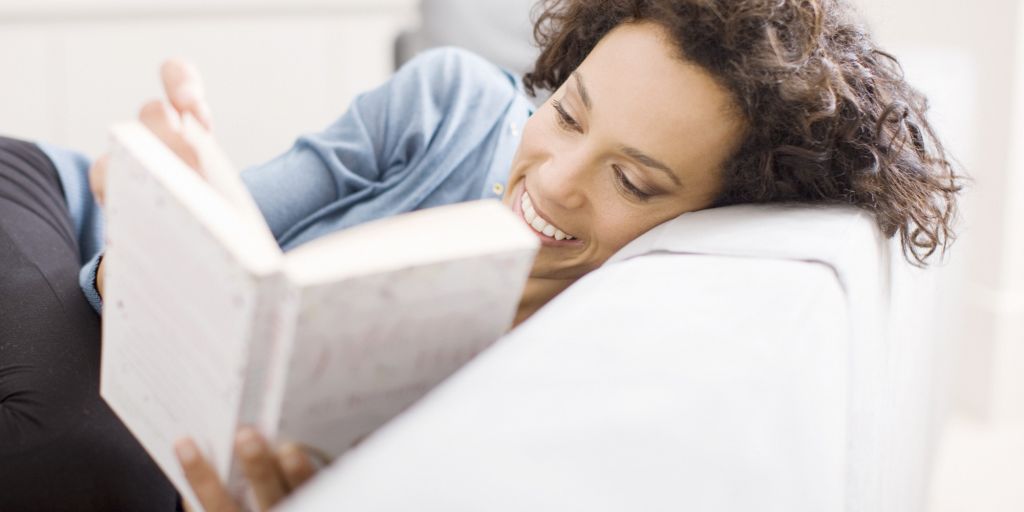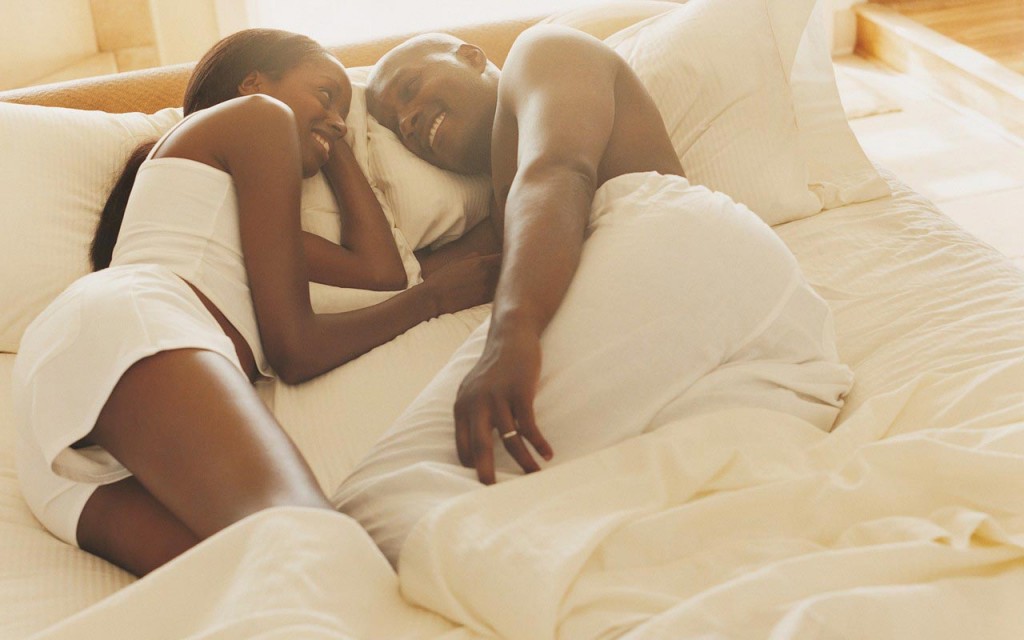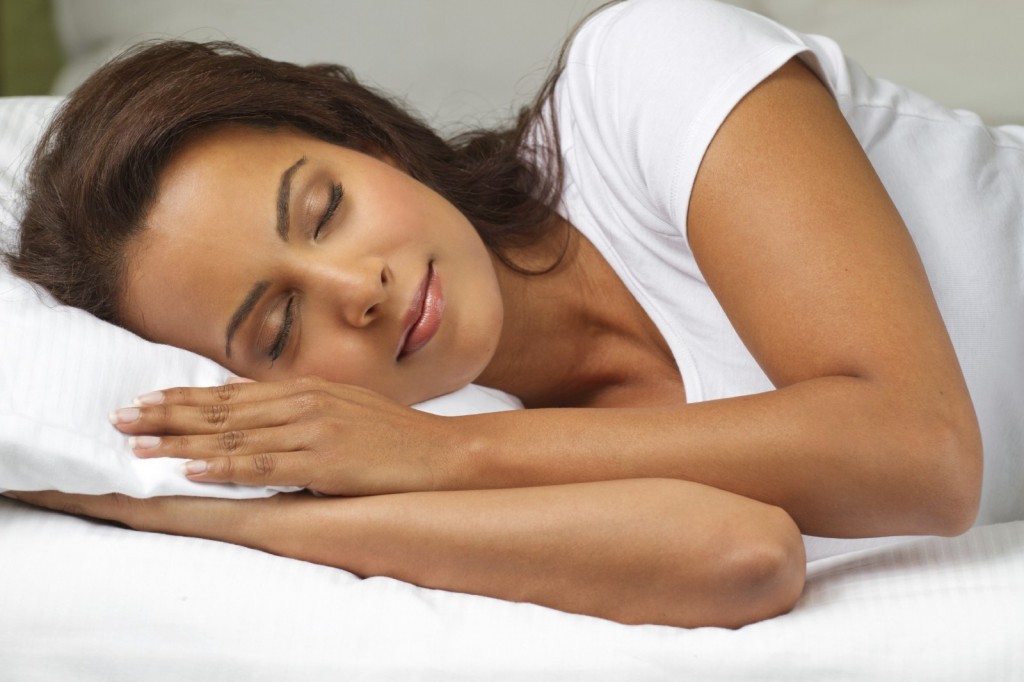You know your smartphone addiction has reached an entirely new level of unhealthy when you can’t hit the pillow at night without it beside you.
As if it isn’t problematic enough to leave your devices charging in the bedroom overnight, a survey conducted by YouGov and The Huffington Post last fall found that 63 percent of smartphone users between the ages of 18 and 29 actually sleep with their phones or tablets in their beds.
In recent years, scientists have discovered that our chronic sleep deprivation is linked to these devices being allowed in our sleep space. A study published in the journalNature last summer by Harvard Medical School professor Dr. Charles A. Czeisler, M.D., Ph.D., revealed how the artificial blue light emitted from electronic devices like cell phones, smartphones and tablets activates arousing neurons within the brain, preventing us from feeling sleepy. Plus: Remaining tethered to technology up until bedtime and keeping devices in our sleeping environments (leading to increased access) not only affects our ability to fall asleep, but the quality of the sleep we achieve by disrupting the body’s production of melatonin, the sleep-inducing hormone.
Here are seven more ways you can benefit from keeping your devices out of the bedroom, and especially out of the bed.
You’ll minimize the urge to play games or chat with friends until an ungodly hour…

It starts with a quick scan of your Facebook news feed or using your remaining lives on CandyCrush, but it rarely ends there — especially for the younger generations. Late-night texting and phone use among teenagers has only exacerbated their chronic sleep deprivation problems, due to a lack of designated sign-off times.
The instant gratification and cognitive stimulation that come from staying connected results in later and later bedtimes, Mark Rosekind, Ph.D., the former director of the Fatigue Countermeasures Program at the NASA Ames Research Center, told WebMD Magazine. “As you stay up later on a consistent basis, you readjust your internal clock, and delayed sleep phase syndrome sets in. Now, your body physically can’t fall asleep until that new, set time, whether it’s midnight or 2 a.m.,” he said. This dysfunctional sleep pattern then negatively impacts energy levels and work productivity the following day.
… And maybe even pick up a new book instead.

If you’re not ready to fall asleep just yet, pick up a book instead of your phone. A reading lamp will not emit the same stimulating blue light as a digital screen, allowing the natural sleep cycle to begin as you wind down. From young adult novels to historical biographies, the written word gives your mind a single track to follow, rather than overwhelming you with stimulating notifications.
And for an added benefit, a 2012 study from the University of Notre Dame revealed that our memory recall is best if we learn something right before sleeping (compared with learning something and then being awake for a whole day). So if you’re looking for us, we’ll be in the nonfiction aisle.
Or pay more attention to your loved one.

A loved one is clearly more cuddly than your cell phone, yet technology in the bedroom is one of the main culprits when it comes to a couple’s sabotaged sex life. A 2013 study from Harris Interactive and Jumio showed that 72 percent of Americans keep their phone within five feet of themselves the majority of the time, and 20 percent of young adults are actually on their phones during sex.
Unfortunately, this technological connection is compromising real life connection. If you want to avoid killing the mood between the sheets and improve your overall communication with your partner, it’s best to leave your phone out of the mix.
You’ll reduce your radiation exposure.
While no conclusive evidence links cell phones to the development of cancer, the phones do emit a form of non-ionizing electromagnetic radiation that can be absorbed by body tissues located near the phone, according to the National Cancer Institute.
And a review of studies by the International Agency for Research on Cancer found that such transmissions were “possibly carcinogenic,” and that risk becomes far more relevant during the times you’re holding the phone to your body. The risk is minimal and insignificant when the phone is disconnected from WiFi — or better yet, turned off completely — but let’s face it, most people who sleep with their phones don’t do so with it in airplane mode.
You’ll instantly relax without those alerts chirping in your ear.
Whether you realize it or not, leaving your phone on or nearby can create a sense ofhypervigilance, an experience often associated with posttraumatic stress disorder that involves feeling constantly tense or on guard. Being alert for incoming phone calls, text messages or emails prevents the body from achieving the desired state of total relaxation.
And you might even hit a whole new level of JOMO.

When you take a technology hiatus, it makes it that much easier to enjoy the present moment and forget about all of the other things going on in the world. Learning to say no to that constant connection gives you mental space to be with your own thoughts — and provide some solitude before you hit the hay.
Sleep, sleep and more sleep!

Just think about how many more Zzs you can log each night without your phone distracting you from just how tired you really are. By setting a curfew with your phone— at least 30 minutes to an hour before lights out — and checking out accordingly, you give your brain the opportunity to slow down and relax rather than stimulate it. Revel in the peace and quiet that is your bedroom, let your remaining thoughts wander, and let sleep drift in as it’s ready rather than letting your phone be the determinant.
Read More at HuffPost








